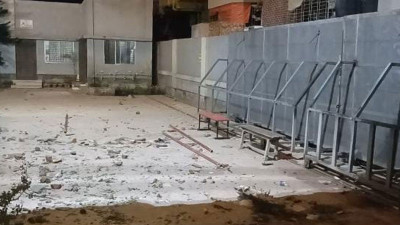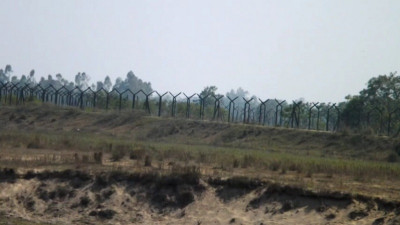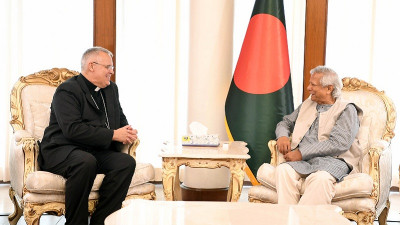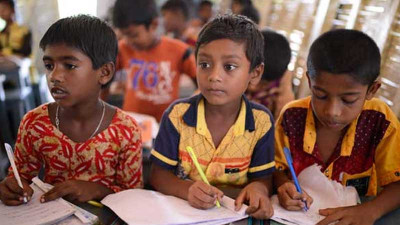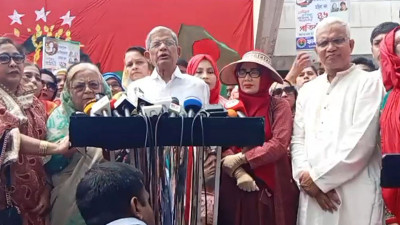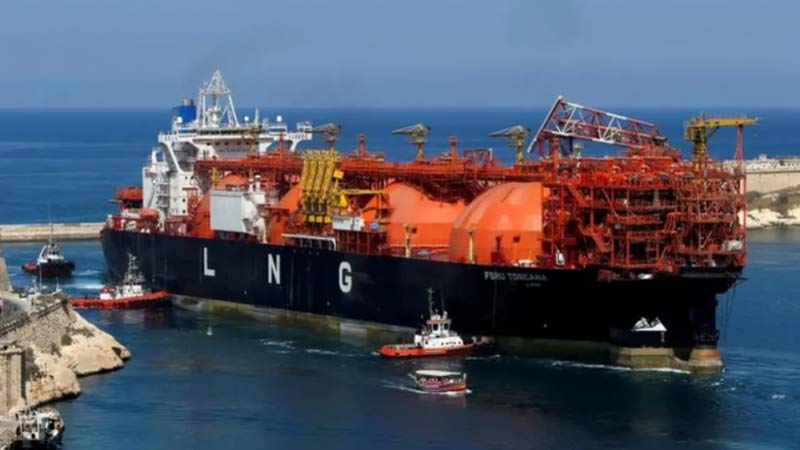 Pic : collected
Pic : collected LNG's
reliance on the country's existing gas supply management has already exceeded
30 percent. Petrobangla has to rely mainly on LNG imports to meet the shortfall
in supply in the national grid. The organization faces challenges when the
international price of this fuel fluctuates or there are currency exchange rate
issues, which can adversely affect its imports. Any disruption in supply
management can lead to severe consequences, causing power shortages that affect
residential areas, CNG-driven transportation, and industrial sectors. The
entire nation suffers when there are setbacks in LNG supply.
Currently,
the country has a daily gas supply capacity of 310 million cubic feet. Out of
this, 110 million cubic feet of daily LNG supply capacity is enabled through
regasification at two floating terminals. Accordingly, LNG contributes more
than 30 percent to the total gas supply capacity of the national grid. However,
Bangladesh faces significant challenges in gas supply due to factors such as
high prices, terminal breakdowns, pipeline faults, or disasters, which can lead
to interruptions in LNG supply, causing major supply crises in the country.
Bangladesh has had to contend with several such crises in the past two and a
half years.
On
July 9, a 42-inch gas pipeline was damaged near the Karnaphuli Tunnel and
private fertilizer factory 'KAFCO' in Chattogram. This incident has disrupted
the operation, resulting in a loss of 24 million cubic feet of LNG supply to
the national grid. Partial or complete shutdowns due to gas shortages have
affected 31 power centers across various locations in Bangladesh, including
Chattogram. The severity of the crisis has intensified, impacting residential
and industrial sectors. Long queues of vehicles can be seen at CNG stations due
to the wait for gas. Although efforts are underway to repair the pipeline, the
gas crisis remains unabated.
Earlier,
on May 27, the Summit LNG Terminal in Ruma was damaged by the impact of Cyclone
Remal. The damaged terminal was taken abroad for repairs, resulting in a
reduction of at least 60 million cubic feet of gas supply to the national grid.
Following severe gas shortages for residential areas, power stations, and
industrial factories, production was affected. Until now, the gas supply has
not resumed from the Summit Terminal.
Regarding
this matter, Md M Kamruzzaman Khan, the Managing Director (Operations and
Maintenance) of Petrobangla, said to Bonik Barta, "The repair work on the
Anwara-Fouzdarhat pipeline has been completed. Approximately 600 million cubic
feet of gas are being supplied from an LNG terminal. Additionally, gas supply
will commence from the Summit LNG terminal next week. This will further
increase gas supply to the national grid."
Previously,
last November, the damaged terminal of Excelerate Energy was kept closed for
inspection. During that time, daily gas supply to the national grid decreased
by 500 million cubic feet. Severe gas shortages were observed in industrial
areas including Dhaka. At least 1000 megawatts of gas-based power plants had to
be kept offline.
Due
to the impact of Cyclone Mocha in January of 2023, safety concerns forced the
closure of the Floating LNG terminal. This led to severe gas shortages for
several days in Chattogram and Cumilla. Partial closures were necessary for the
Meghnaghat, Haripur, and Siddhirganj gas-based power plants during that time.
Due
to high prices, LNG imports had to be suspended from July 2022 to January 2023.
During this period, in August 2022, the price of LNG per MMBtu had risen to
70.50 dollars.
The
government has developed the Integrated Energy and Power Master Plan
(IEPMP)-2023, which focuses on the future supply strategy for the country's
power and energy sectors. This comprehensive plan significantly increases the
dependency on imported LNG (Liquefied Natural Gas) for the energy supply
system. Experts and observers fear that if this plan is implemented, it will
lead to increased problems in all related sectors. According to Petrobangla's
estimates, by 2030, the daily demand for gas in the country will reach 6.24
billion cubic feet. Of this, approximately 2 billion cubic feet will be
available from local gas fields, while the remaining 4.24 billion cubic feet
will need to be imported as LNG. The IEPMP projects that by 2030, the reliance
on LNG imports to meet the gas demand will more than double, reaching about 68
percent.
Experts warn that increasing dependence on LNG imports could be disastrous for the energy sector. If imports are disrupted for any reason, the economy could face severe consequences. Issues such as financial constraints preventing the purchase of LNG or supply disruptions due to infrastructure problems could significantly impact all parties involved.
Professor
Badrul Imam, an energy expert, said to Bonik Barta, "The master plan
largely revolves around LNG for gas supply management. There are two main
concerns here: firstly, the instability of LNG prices in the global market, and
secondly, the increased reliance on LNG instead of local gas supplies. If there
is another global LNG crisis, it could severely jeopardize the entire gas
supply system and hurt the overall economy."
The
government aims to increase the capacity of the existing LNG terminals to 1.26
billion cubic feet per day by 2030. Additionally, plans are in place to
construct two more LNG terminals in Maheshkhali and Payra with a combined
capacity of 1.7 billion cubic feet. Another land-based terminal with a capacity
of 1 billion cubic feet is also being developed in Matarbari. According to the
Energy Division's plan, these terminals could start production between 2026 and
2030.
Experts
indicate that if an LNG terminal becomes inoperative or if gas supply through
pipelines is interrupted, Petrobangla or the Energy Division lacks the
financial or infrastructural capacity to activate an alternative quickly.
Energy expert Professor M Tamim told Bonik Barta, "The current issues with
gas supply are mainly related to LNG, whether due to infrastructure or supply
chain management. The Energy Division does not have any alternative
infrastructure to maintain the supply chain if a line or a floating terminal is
damaged. This requires a huge amount of money. Currently, makeshift solutions
are keeping the management functional, and the supply chain is being maintained
in this manner. Many pipelines are old and need significant funds for
renovation."
Petrobangla's
subsidiary, Gas Transmission Company Limited (GTCL), is responsible for LNG
imports and gas transmission operations. GTCL is constructing transmission
pipelines across the country to supply gas. Additionally, two pipelines are
being built to supply imported LNG in the future.
Shahnewaz
Parvez, Director of the GTCL Managing, told Bonik Barta, "Large-scale LNG
imports are expected to begin by 2026 as per agreements. Terminal construction
activities have already started. GTCL is taking the necessary steps to
construct second and third parallel pipelines in the transmission system. Our
goal is to complete the GTCL projects related to LNG activities within the
stipulated time to avoid any complexities in transmission once the product is
imported."

